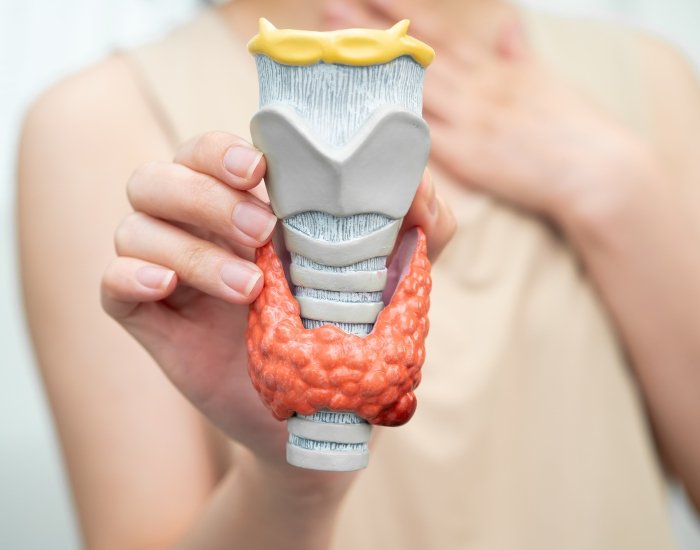Experiencing chest tightness and a pounding heartbeat can be unsettling, leaving you worried about your health and unsure of the cause. While these symptoms may occasionally result from stress or physical exertion, they can also indicate underlying medical conditions that require attention. Recognizing the potential causes and addressing them early can help you manage your symptoms effectively and improve your quality of life.
What Causes Chest Tightness and a Pounding Heartbeat?
Chest tightness and a racing heartbeat can occur for various reasons, ranging from harmless triggers to more serious health concerns. Common causes include:
Anxiety and Stress: Emotional stress and anxiety can activate your body’s fight-or-flight response, leading to an increased heart rate and a feeling of tightness in the chest. This is often accompanied by shallow breathing and a sense of unease.
Physical Exertion: Intense exercise or overexertion can temporarily cause chest tightness and a pounding heartbeat, especially if your body is not accustomed to the activity level.
Cardiovascular Issues: Conditions like high blood pressure (hypertension), arrhythmias, or coronary artery disease can cause these symptoms, particularly if they occur at rest or persist for an extended period.
Respiratory Conditions: Asthma, bronchitis, or other lung-related issues can lead to chest discomfort and an increased heart rate as your body works harder to circulate oxygen.
Understanding the context of your symptoms—when they occur, how long they last, and any accompanying sensations—is key to identifying the underlying cause.
Recognizing Accompanying Symptoms
Chest tightness and a pounding heartbeat are often accompanied by other symptoms, which can help narrow down their cause. These include:
Shortness of breath or difficulty breathing
Lightheadedness or dizziness
Sweating, nausea, or clammy skin
Pain radiating to the arms, back, or jaw
If these symptoms appear suddenly or feel severe, they could indicate a medical emergency, such as a heart attack, and require immediate attention.
Managing Chest Tightness and Heart Palpitations
For mild symptoms caused by stress or physical exertion, there are actionable steps you can take to find relief:
Practice Deep Breathing: Slow, controlled breathing can help calm your nervous system and regulate your heart rate. Try inhaling deeply for four counts, holding for four counts, and exhaling for four counts.
Stay Hydrated: Dehydration can contribute to an irregular heartbeat and chest discomfort. Drink plenty of water throughout the day to maintain hydration.
Reduce Stimulants: Limit caffeine and nicotine intake, as these substances can increase heart rate and exacerbate chest tightness.
For persistent or recurring symptoms, it’s essential to consult a healthcare provider to determine the root cause and create a tailored treatment plan.
Lifestyle Adjustments for Long-Term Relief
Incorporating healthy habits into your routine can help prevent chest tightness and palpitations in the long term. Regular physical activity, such as walking or yoga, strengthens your cardiovascular system and reduces stress. Additionally, a balanced diet rich in whole grains, lean proteins, and fruits and vegetables supports heart health and maintains stable blood pressure levels.
Monitoring your stress levels is equally important. Techniques like mindfulness meditation or journaling can help you manage anxiety, a common trigger for these symptoms. If needed, professional counseling or therapy can provide additional support.
When to Seek Medical Attention
While occasional chest tightness and a pounding heartbeat may not be cause for alarm, persistent or severe symptoms should be evaluated by a healthcare provider. If you experience these symptoms along with chest pain, fainting, or extreme shortness of breath, seek emergency care immediately.
At Lifecare Primary Medical Clinic, our experienced physicians can conduct a thorough evaluation to identify potential causes and provide personalized treatment. This may include diagnostic tests, such as an electrocardiogram (EKG), blood tests, or imaging studies, to ensure a comprehensive assessment.
Final Thoughts
Chest tightness and a pounding heartbeat can feel alarming, but they are often manageable with the right care and lifestyle adjustments. Identifying the triggers and addressing them early can make a significant difference in your overall health and well-being.
At Lifecare Primary Medical Clinic, we are dedicated to helping you understand and manage these symptoms with personalized care and expertise. Schedule an appointment today for a complete evaluation and take the first step toward a healthier, more comfortable life.
Disclaimer:
The information provided in this blog is for educational purposes only and is not intended as medical advice. It should not be used to diagnose or treat any health condition. Always consult with a qualified healthcare professional for accurate diagnosis and treatment of any symptoms or medical concerns.




